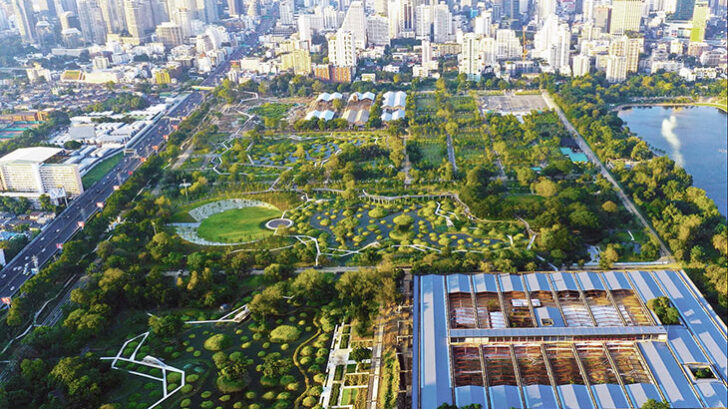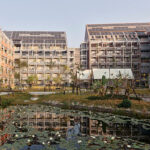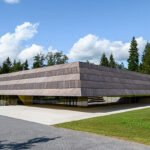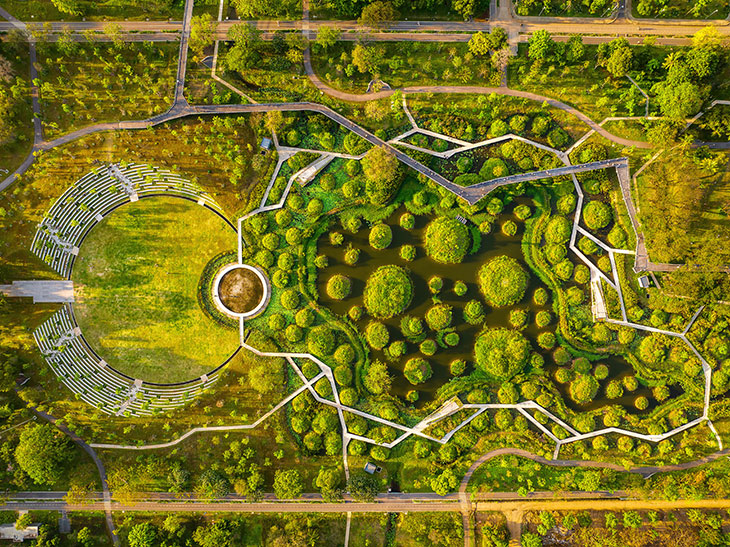
In the heart of Bangkok, Thailand, an ambitious project led by Turenscape has breathed new life into a former tobacco factory site, transforming it into a lush, green sanctuary. Despite a low budget and an 18-month timeline, this site has been converted into a vital public space that regulates stormwater, cleanses contaminated water, and provides habitats for wildlife. This new urban oasis is not only an example of innovative landscape architecture but also a but also a significant addition to Bangkok’s urban life, showcasing a replicable modular approach to earthworks that can turn lifeless concrete into a resilient ecosystem.
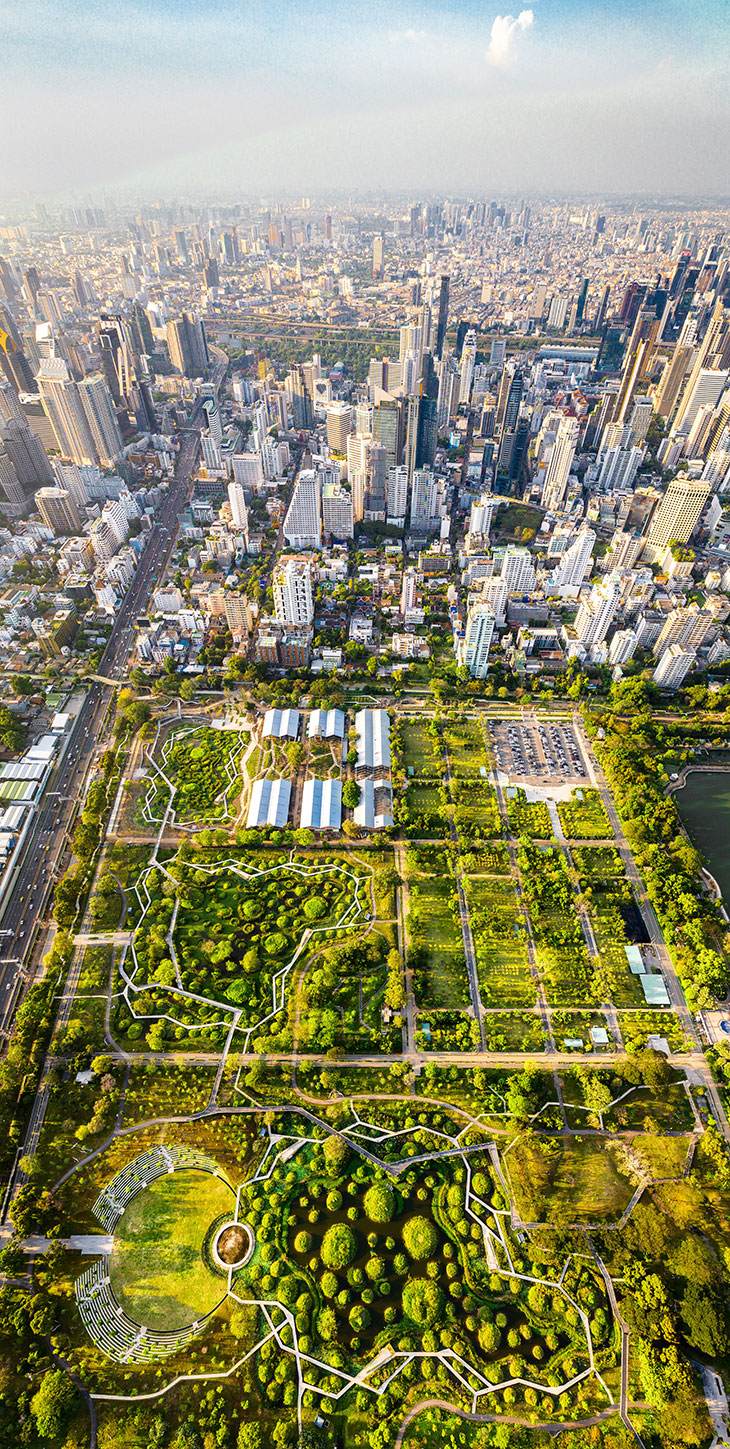
The challenges of this project were immense. Bangkok, a city of over 10.5 million people, sits in the Chao Phraya River delta, a low-lying area prone to flooding due to its average elevation of just 1.5 meters above sea level. The city’s monsoon climate, combined with extensive groundwater pumping, exacerbates subsidence and flood risks. The 102-acre project site in the Khonti District, surrounded by contaminated canals and severed from the community by an urban expressway, posed significant hurdles. Moreover, the project was overseen by the army, which had little experience in landscape projects, and was constrained by a budget of just 20 US dollars per square meter.
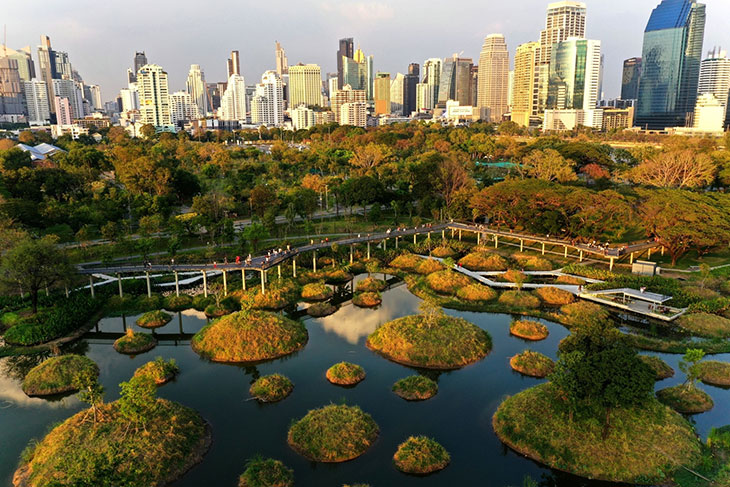
The design objectives were clear: create a central park that provides holistic ecosystem services, including stormwater regulation, water purification, habitat creation, and public space for recreation. The strategy, conceived by Turenscape, hinged on three main principles: recycling and reusing materials, creating porous wetlands, and initiating low-maintenance, semi-natural plant communities. All existing trees were preserved, and the main roads of the site were reused to keep costs low. Factory buildings were repurposed into a sports center and museum, with demolished concrete materials recycled for foundations and paving.
Cut-and-fill techniques were employed to create wetlands with mini-islands, transforming the concrete-paved ground into a spongy, porous landscape capable of retaining stormwater during the monsoon season. This approach not only mitigated flood risks but also established habitats for native species. The wetlands were designed with terraced shorelines and deeper core areas, connected to linear water-remediating wetlands that cleanse contaminated canal water. This design ensures the wetlands remain nourished during the dry season and supports a lush, diverse vegetation community.
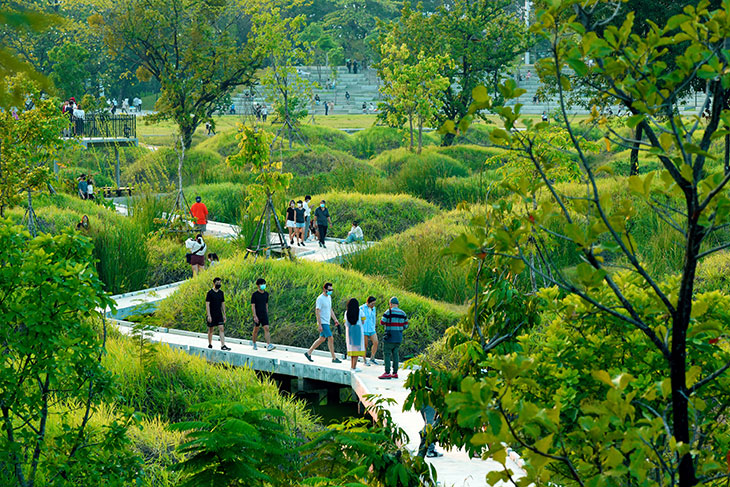
The concept of “Messy Nature” was embraced to foster a low-maintenance environment. The diverse micro-environments, created by the modulated landform, allowed a semi-natural plant community to evolve, enriched by native species over time. This approach not only reduced maintenance costs but also introduced a new aesthetic of dynamism and diversity to the urban landscape. Boardwalks and skywalks were integrated into the design, providing immersive experiences and connecting the park with the surrounding community.
Since its completion, Benjakitti Forest Park has exceeded expectations. Last summer, while most of Bangkok experienced severe flooding, the park and its vicinity remained flood-free. The water-remediating wetlands effectively purified enough water to sustain the ecosystem through the dry season. The park has become a haven for wildlife, with 91 bird species recorded, and a beloved public space for Bangkok’s residents.
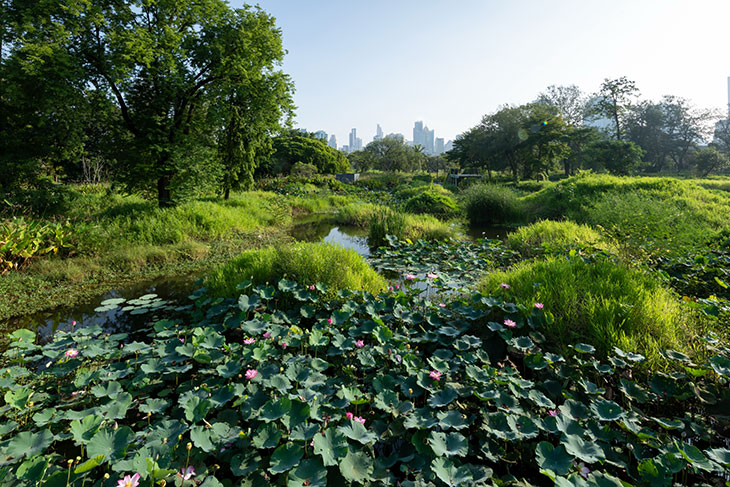
Benjakitti Forest Park exemplifies how Turenscape’s innovative landscape architecture can transform urban environments, providing ecological and social benefits. This project, completed within 18 months and on a limited budget, demonstrates that with strategic planning and design, even the most challenging sites can be turned into vibrant, resilient ecosystems that enhance the quality of life for urban residents.
